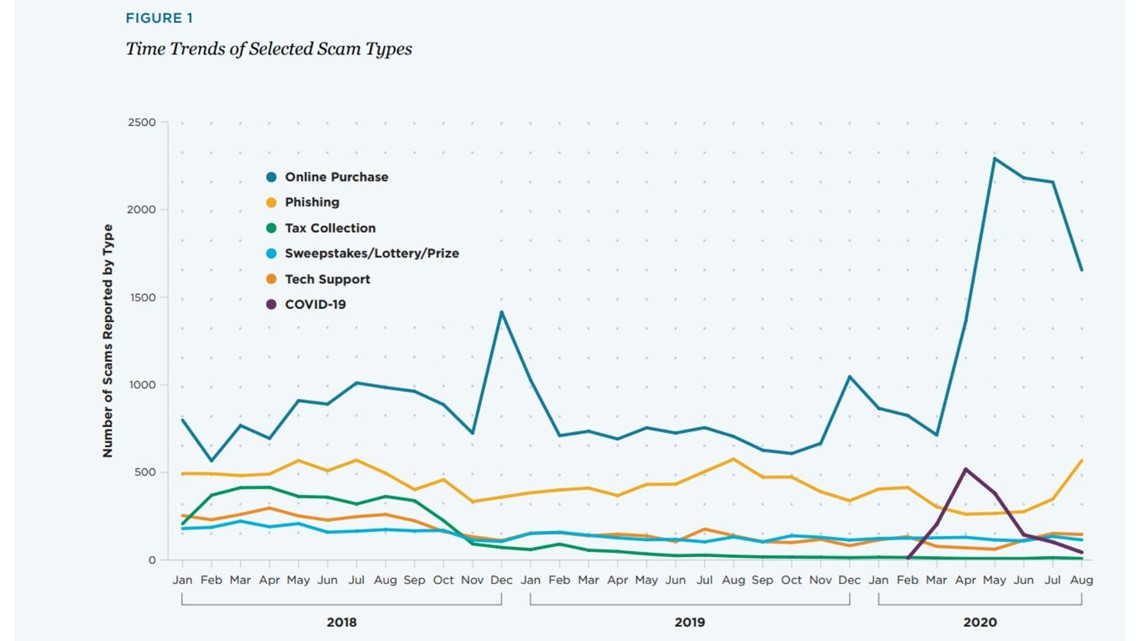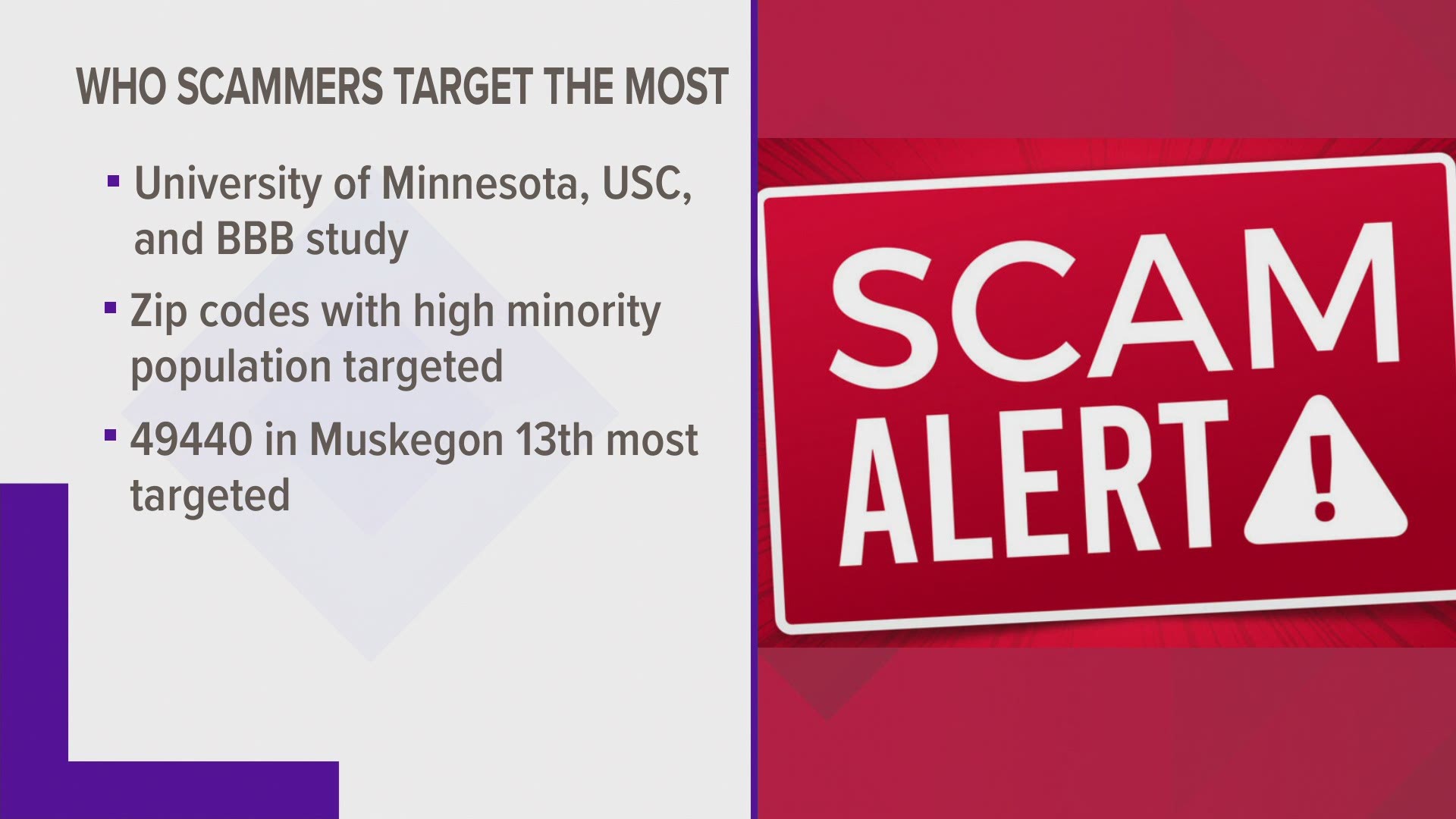MUSKEGON, Mich. — A new analysis of scam reports submitted to the Better Business Bureau (BBB) shows that minority communities are more likely to lose money to scammers. The analysis found that Muskegon, Mich. was listed among the U.S. cities most impacted by scams.
The findings come from a research project that included the BBB and researchers at the University of Minnesota and the University of South California. Researchers looked at scam reports from before and after the onset of the COVID-19 pandemic.
Scam reports to the BBB Scamtracker were compared with demographic data from the affected zip codes. The results indicated that those reporting from zip codes with a larger portion of Black, Hispanic, Asian, and other racial minorities are more likely to lose money when targeted by scammers. When examining the nationwide data, Muskegon is ranked as the 13th most affected zip code for scams in the United States.
The findings also found that those reporting from zip codes with a population less likely to have GED or high school equivalent education, are more likely to lose money when targeted by scammers.
“The results of this study shows that scam education is key in helping our community combat these cons,” Phil Catlett, President of the Better Business Bureau Serving Western Michigan said. “By understanding which communities are most impacted by scams, we can better work to educate and support those who are the most likely to lose money.”
The BBB also took a look at the general impact COVID-19 has had on scam trends.
Scams involving online purchases have skyrocketed since the pandemic began, the BBB said. Scam reports involving masks and other PPE increased significantly in March, April and May 2020 as websites failed to deliver the protective items ordered online.


While the number of reports have decreased since then, the number of online purchase scam reports remain high, the BBB explained. This includes pet scams and websites found on social media (i.e.: Facebook, Instagram, and TikTok). The BBB said non-delivery of purchased items is the most common complaint received, but that it has also seen a large increase in phishing and employment scams during the pandemic.
RELATED VIDEO:
►Make it easy to keep up to date with more stories like this. Download the 13 ON YOUR SIDE app now.
Have a news tip? Email news@13onyourside.com, visit our Facebook page or Twitter. Subscribe to our YouTube channel.


